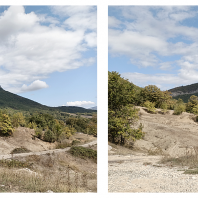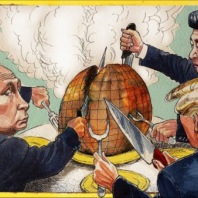о чем вам никогда не скажет кива
 npubop — 22.04.2016
Portugal’s Example: What Happened After It Decriminalized All
Drugs, From Weed to Heroin
npubop — 22.04.2016
Portugal’s Example: What Happened After It Decriminalized All
Drugs, From Weed to HeroinAs diplomats gather at the United Nations in New York this week to consider the future of global drug policy, one Portuguese official, João Goulão, will likely command attention that far outstrips his country's influence in practically any other area. That's because 16 years ago, Portugal took a leap and decriminalized the possession of all drugs — everything from marijuana to heroin. By most measures, the move has paid off.
Today, Portuguese authorities don't arrest anyone found holding what's considered less than a 10-day supply of an illicit drug — a gram of heroin, ecstasy, or amphetamine, two grams of cocaine, or 25 grams of cannabis. Instead, drug offenders receive a citation and are ordered to appear before so- called "dissuasion panels" made up of legal, social, and psychological experts. Most cases are simply suspended. Individuals who repeatedly come before the panels may be prescribed treatment, ranging from motivational counseling to opiate substitution therapy.
The rate of new HIV infections in Portugal has fallen precipitously since 2001, the year its law took effect, declining from 1,016 cases to only 56 in 2012. Overdose deaths decreased from 80 the year that decriminalization was enacted to only 16 in 2012. In the US, by comparison, more than 14,000 people died in 2014 from prescription opioid overdoses alone. Portugal's current drug-induced death rate, three per million residents, is more than five times lower than the European Union's average of 17.3, according to EU figures.
When Portugal decided to decriminalize in 2000, many skeptics assumed that the number of users would skyrocket. That did not happen. With some exceptions, including a marginal increase among adolescents, drug use has fallen over the past 15 years and now ebbs and flows within overall trends in Europe. Portuguese officials estimate that by the late 1990s roughly one percent of Portugal's population, around 100,000 people, were heroin users.
Today, "we estimate that we have 50,000, most of them under substitution treatment," said Goulão before adding that he's recently seen a small uptick in use of the drug, predominantly among former addicts that got clean.
Я всегда был последовательным сторонником легализации всего. И я знаю что я прав. Сама жизнь это подтверждает. А теперь пойду въебу вина.
|
|
</> |

 Рефинансирование ипотеки: какие документы нужны для оформления?
Рефинансирование ипотеки: какие документы нужны для оформления?  Еженедельники
Еженедельники  Наряды и аксессуары с выставки "Зимние сезоны в Москве и Санкт-Петербурге"
Наряды и аксессуары с выставки "Зимние сезоны в Москве и Санкт-Петербурге"  У женатиков свои причуды
У женатиков свои причуды  3 года СВО
3 года СВО  День 10. Богатое ущелье
День 10. Богатое ущелье  Бабочки порхают, бабочки...
Бабочки порхают, бабочки...  Утреннее
Утреннее  Вас предупредили
Вас предупредили 



